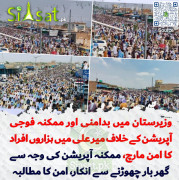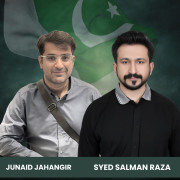MANNO
Councller (250+ posts)

The Red Cross in Afghanistan has been teaching the Taliban basic first aid and giving insurgents medical equipment so that fighters wounded during battles with Nato and Afghan government forces can be treated in the field, it was revealed today.
More than 70 members of the "armed opposition" received training in April, the Red Cross said a move likely to anger the government of Hamid Karzai, which is losing large numbers of police and soldiers in insurgent attacks.
The International Committee of the Red Cross (ICRC) said it had introduced the classes because pitched battles, landmines and roadblocks stopped people in the most volatile areas from getting to hospital.
The Red Cross, which aims to remain neutral in the conflict, has trained more than 100 Afghan soldiers and policemen, as well as a network of taxi drivers who operate an unofficial ambulance service in Helmand and Kandahar provinces.
Today, a leading figure in Kandahar's local government, who wanted to remain anonymous, said the Taliban did "not deserve to be treated like humans".
He said: "They are like animals, and they treat the people they capture worse than animals. They kidnapped and killed an American lady and then wouldn't even return her body. These people don't deserve this help."
The Afghan ministries of defence and the interior said they were unable to comment on what they described as a highly controversial issue.
A Nato spokesman in Kabul said: "Nato has tremendous respect for the humanitarian work carried out by the ICRC and we recognise the need for this work to be carried out impartially.
"Isaf [Nato] forces also provide treatment to any case caught up in this conflict, including our opponents, in line with our own obligation to respect the rules of armed conflict."
One of the ICRC-trained drivers, who transports sick and wounded people from Sangin district in Helmand, where some of the most fierce fighting is taking place, to Mirwais hospital in Kandahar city, told the ICRC that roadblocks and insecurity had lengthened the journey to six or seven hours, rather than the normal two.
The extraordinary measure highlights how badly security has declined in southern Afghanistan, undermining this summer's effort by US-led forces to protect the population from violence. The ICRC said its volunteers in Kandahar and staff at Mirwais hospital had seen a "substantial increase" in the number of patients injured by improvised explosive devices (IEDs) and other weapons.
Critics of the Nato push in southern Afghanistan, which is aimed at seizing full control of Kandahar city and central Helmand from the Taliban by the end of the year, said that coalition commanders had made the situation worse by publicising where they were going to launch assaults.
By discussing publicly their plans in February for clearing the largely rural area of Marja in Helmand and then their desire to "clear" districts surrounding Kandahar city, Nato hoped many insurgents would simply choose not to fight.
But in many cases, the move gave the Taliban time to dig in and plant IEDS in the areas.
For years the beds at Mirwais hospital have been regularly filled with men with gunshot wounds, many of whom are insurgents. But ICRC staff, who support the work of the hospital, have learned not to ask questions about how they sustained their injuries.
In general the government has been happy to allow fighters to come to the hospital, receive treatment and leave again.
But in Helmand in April, the tacit approval for such humanitarian medical support appeared to break down when Afghan security services raided a hospital in Lashkar Gah, the provincial capital, run by an Italian NGO called Emergency, which also has a strict policy of providing surgical help to anyone who needs it. Nine staff were arrested and accused of plotting to murder the provincial governor after weapons and suicide bomb vests were found in the compound.
The International Committee of the Red Cross runs hospitals in Afghanistan, visits prisoners on both sides of the conflict and co-operates on various projects with the Afghan Red Crescent Society, a separate organisation, on various projects.
http://www.guardian.co.uk/world/2010/may/25/red-cross-first-aid-taliban
































